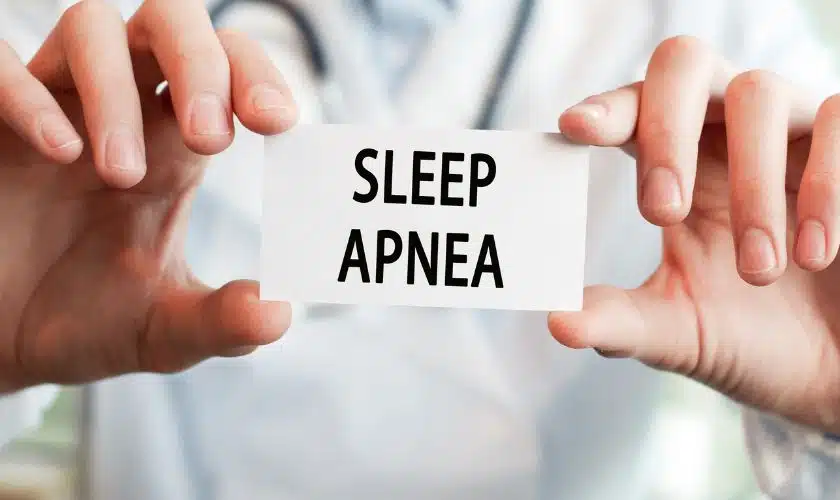Sleep apnea is a prevalent sleep disorder affecting millions of people worldwide. It disrupts your normal breathing patterns during sleep, leading to a series of health complications if left untreated. While some symptoms are readily noticeable, others might be subtle. This comprehensive guide explores the telltale signs of sleep apnea, empowering you to recognize them and seek appropriate diagnosis and treatment.
Daytime Sleepiness: The Hallmark Symptom
Excessive daytime sleepiness (EDS) is the most well-known symptom of sleep apnea. You might experience:
- Feeling tired throughout the day, even after a full night’s sleep.
- Difficulty concentrating or focusing on tasks.
- Needing to take frequent naps during the day.
- Difficulty staying awake while driving, watching TV, or reading.
These symptoms arise because sleep apnea disrupts your sleep quality. The frequent breathing interruptions prevent you from reaching deep sleep stages, leaving you feeling unrestrained and fatigued during the day.
Witnessed Sleep Apnea Signs: Partner’s Observations
Since some sleep apnea symptoms occur unconsciously, your bed partner might be the first to notice them. Here are some signs they might observe:
-
Loud Snoring: While snoring is a common occurrence, particularly in heavy sleepers, it becomes a concern in sleep apnea. The snoring might be loud, accompanied by gasping, snorting, or complete pauses in breathing.
-
Restless Sleep: People with sleep apnea often toss and turn excessively throughout the night. This restlessness signifies the body’s struggle to maintain an open airway for proper breathing.
-
Waking Up Gasping or Choking: These sudden awakenings occur as the body struggles to resume breathing after an apnea event.
Nocturnal Symptoms: What You Might Experience
Apart from the disruptions noticed by your partner, you might experience these nighttime symptoms:
-
Frequent Awakenings: You might wake up briefly throughout the night without fully remembering it. These micro-awakenings disrupt sleep continuity and contribute to daytime fatigue.
-
Morning Headaches: Sleep apnea can lead to headaches upon waking, likely due to sleep fragmentation and oxygen deprivation during the night.
-
Dry Mouth or Sore Throat: Waking up with a dry mouth or sore throat can be a sign of mouth breathing caused by a blocked airway during sleep.
-
Night Sweats: While night sweats can have various causes, they can also occur in people with sleep apnea due to fluctuations in oxygen levels and body temperature regulation.
Beyond Sleep: How Sleep Apnea Affects Your Wellbeing
Sleep apnea’s effects extend beyond sleep and daytime fatigue. Here’s how it can impact your overall health:
-
Mood Swings and Irritability: Chronic sleep deprivation associated with sleep apnea can lead to mood swings, irritability, and difficulty managing emotions.
-
Cognitive Decline: Sleep apnea can impair memory, concentration, and overall cognitive function.
-
Increased Risk of Health Problems: Untreated sleep apnea increases the risk of developing high blood pressure, heart disease, stroke, and type 2 diabetes.
Seeking Help: The Road to a Restful Night’s Sleep
If you suspect you might have sleep apnea, it’s crucial to seek professional medical advice. A doctor can conduct a sleep study to diagnose the condition and determine its severity. Depending on the diagnosis, treatment options for Sleep Apnea Treatment in Imperial might include:
-
Continuous Positive Airway Pressure (CPAP): This is the most common treatment for sleep apnea. A CPAP machine delivers constant air pressure through a mask worn during sleep, keeping your airway open.
-
Oral Appliance Therapy: For mild to moderate sleep apnea, a custom-made oral appliance can be used to reposition your jaw and tongue, preventing airway collapse.
-
Lifestyle Changes: Weight loss, quitting smoking, and avoiding alcohol before bed can improve sleep quality and potentially reduce sleep apnea severity.
Taking Charge of Your Sleep Health
Sleep apnea is a treatable condition. Recognizing the symptoms and seeking timely medical intervention is key to achieving better sleep and improving your overall health and well-being. If you suspect sleep apnea might be affecting your sleep quality and daily life, consult a healthcare professional to discuss potential solutions, including Sleep Apnea Treatment in Imperial. With proper diagnosis and treatment, you can reclaim a good night’s sleep and wake up feeling refreshed and energized.
Living a Fulfilling Life with Sleep Apnea Treatment in Imperial
A diagnosis of sleep apnea doesn’t have to limit your life. With proper treatment and lifestyle adjustments, you can manage the condition effectively and enjoy a healthy, fulfilling life. Here are some tips:
-
Adherence to Treatment: Following your doctor’s recommended treatment plan consistently is crucial. Whether it’s using a CPAP machine, wearing an oral appliance, or making lifestyle changes, consistent adherence is key to managing sleep apnea and reaping its benefits.
-
Healthy Sleep Habits: Developing good sleep hygiene practices can significantly improve your sleep quality. This includes maintaining a regular sleep schedule, creating a relaxing bedtime routine, and establishing a comfortable sleep environment.
-
Regular Exercise: Regular physical activity can improve sleep quality and reduce sleep apnea severity. Aim for at least 30 minutes of moderate-intensity exercise most days of the week.
-
Weight Management: If you’re overweight or obese, losing weight can significantly improve your sleep apnea symptoms. Even modest weight loss can make a big difference.
-
Support Groups: Connecting with others who understand the challenges of sleep apnea can be a source of encouragement and support. Consider joining a sleep apnea support group or online forum to connect with others on a similar journey.
Sleep apnea is a serious condition, but it’s treatable. By recognizing the symptoms, seeking a professional diagnosis, and following a personalized treatment plan, you can manage sleep apnea and reclaim control of your sleep health. Remember, a good night’s sleep is vital for your physical and mental well-being. If you’re experiencing any of the telltale signs of sleep apnea, don’t hesitate to reach out to a healthcare professional for evaluation and discuss Sleep Apnea Treatment in Imperial. With the right approach, you can achieve restful sleep and wake up feeling refreshed and ready to take on the day.
